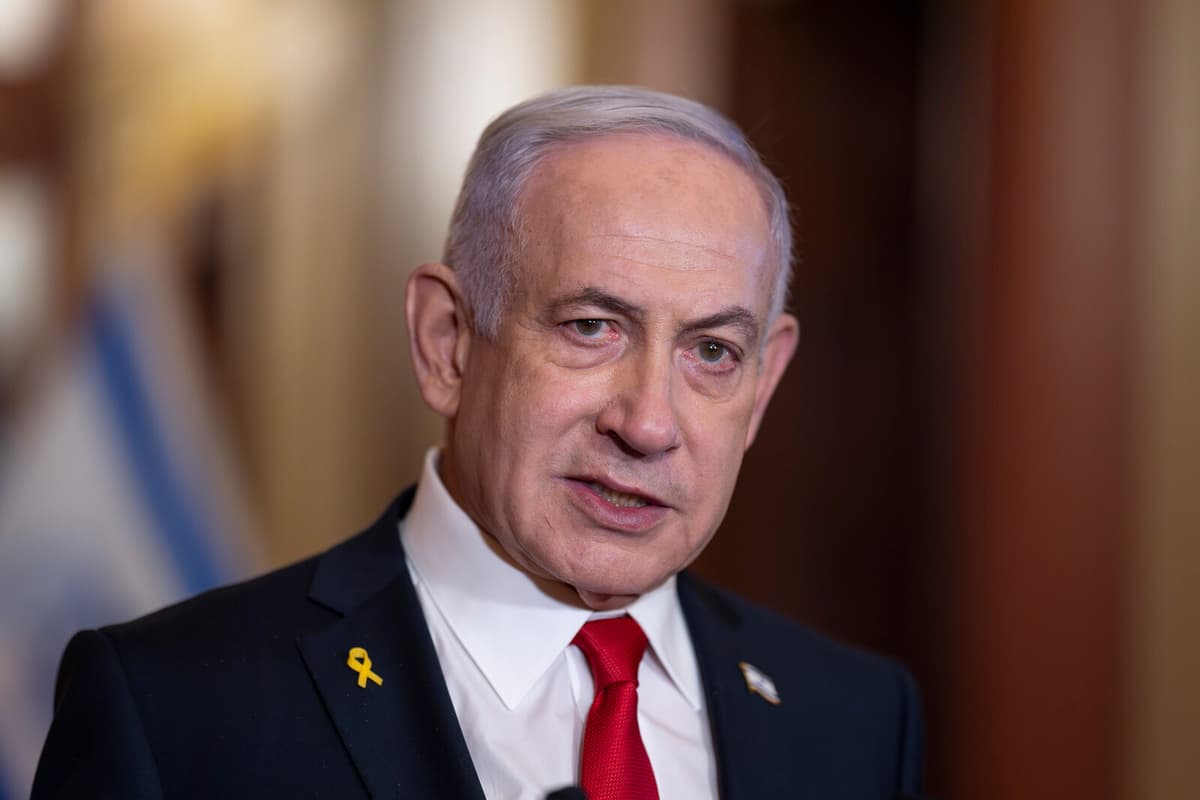If Hamas has not returned the hostages by Saturday lunch, the ceasefire will be broken and the military will launch intense battles until Hamas is defeated, says Netanyahu in a recorded speech.
The move comes after a meeting with the country's security cabinet, where Netanyahu is said to have "welcomed President Trump's demands for the release of the hostages" and the American leader's "revolutionary visions for Gaza's future".
Immediately after the speech, the Israeli military announced that it would reinforce its forces along the border with Gaza, as "preparations for various scenarios".
"Hell will break loose"
Israeli media reports that Israel is demanding the release of all hostages before talks on the second phase of the ceasefire can even begin. According to The Times of Israel, this involves 73 people, of whom at least 34 have been confirmed dead.
Trump demanded on Tuesday that all hostages be released over the weekend. Israel is not going that far, demanding that nine people be released by Hamas.
According to the ceasefire agreement, three hostages will be handed over on Saturday.
Trump did not mince words when he said that "hell will break loose" if the terrorist-designated group does not comply with his orders.
He did not specify what he meant by "hell".
You will notice it - Hamas will notice what I mean.
Before his meeting with Jordan's King Abdullah at the White House on Tuesday evening, Trump said he "does not believe" that Hamas will comply with the agreement despite the threats.
Trump's warning dismissed
Hamas announced on Monday that it would pause all exchanges of hostages for prisoners "until further notice". The terrorist-designated movement, which rules in Gaza, however, stated that the door "still remains open" for the prisoner exchange to continue.
The move came in response to Hamas' claim that Israel has repeatedly violated the ceasefire, including delaying Palestinians' opportunities to return home to northern Gaza and blocking aid shipments to the strip.
Trump's warning of "hell" has, however, been dismissed by Hamas: the president must "remember that there is an agreement to respect", says Hamas spokesperson Sami Abu Zuhri, adding that threats have no value and "only complicate the matter".
The Gaza war began with the terrorist-designated Hamas' major attack on Israel on October 7, 2023. The current ceasefire began on January 19 this year and is scheduled to last for six weeks.
A key part of the agreement is that Israel will release Palestinian prisoners, while Hamas releases people from the hostages taken during the attack.
Israel is set to release around 1,900 prisoners in total. Exactly how many will be released each time is unclear, but it will happen simultaneously with Hamas releasing the hostages.
When phase one is over, around 60 Israelis will still be held hostage by Hamas. The idea is that they will be released in a new phase of the ceasefire, which will also pave the way for a more long-term peace in Gaza. But the circumstances for this have not yet been negotiated.
Sources: Haaretz, BBC






